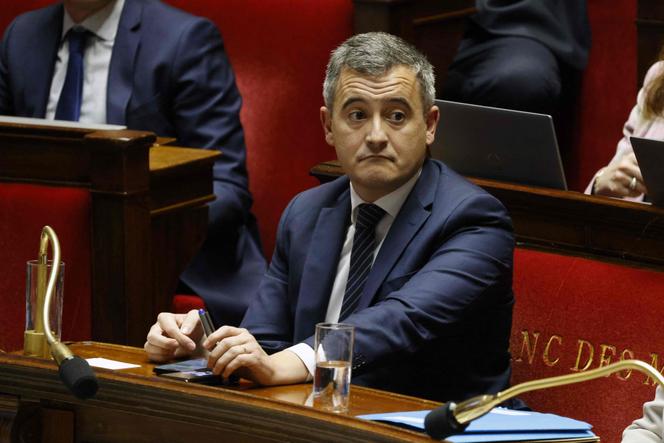


On Monday, December 11, France's Assemblée Nationale adopted a motion to reject Emmanuel Macron's immigration bill by 270 votes to 265, inflicting a heavy political defeat on the government.
The Greens tabled the motion and were supported by the socialists, the Rassemblement National (RN, far-right) and Les Républicains (LR, conservative) groups. The adoption of this motion means the bill hasn't even been debated on the floor of the Assemblée. The use of Article 49, paragraph 3, of the constitution, allowing the bill to be adopted without a vote, is not possible at this stage.
This does not mean that the bill has been definitively rejected. The government can now choose to let it continue its legislative path in the Sénat, convene a joint committee or decide to abandon it.
The government may choose to let its bill return to the Sénat, where it was adopted on first reading, albeit with major changes. The LR senators, who hold the majority in the Sénat, increased the number of articles in the bill from 27 to around 100, considerably toughening the repressive nature of the text, sometimes with the president's approval.
The bill includes restriction of droit du sol for children born in France to foreign parents; the abolition of State Medical Aid, the only healthcare coverage available to undocumented people; tougher conditions for reunification of migrants' families, student migration and issuance of residence permits for sick foreigners; restriction of access to social rights; re-establishment of the offense of illegal residence; withdrawal of residence permits in the event of failure to respect the "principles of the Republic;" exclusion of undocumented people from the right to emergency accommodation.
Several of these measures were subsequently retracted or rewritten by MPs when the bill was examined in the Assemblée Nationale's law commission, on December 2.
The government could also decide to convene a commission mixte paritaire (CMP, a join parliamentary commission). Convened in the event of persistent disagreement on a bill, a CMP brings together seven members of parliament, seven senators and as many substitutes behind closed doors, in an attempt to reach a consensus on the bill.
Under Article 45 of the Constitution, the rule is that the CMP meeting must "propose a bill on the provisions still under discussion," in other words on provisions "which have not been adopted in the same terms by either assembly." No additional provisions are therefore accepted and the right of amendment cannot be exercised.
Theoretically, discussions would therefore be based on the only bill adopted by one of the two parliamentary chambers, i.e. the one voted by the Sénat, putting the French right in a strong position. Bruno Retailleau, the president of the LR group in the upper house, is already showing his colors: if the government convenes a joint committee, "The Sénat's text will clearly be our only compass."
In the wake of the slap in the face Interior Minister Gérald Darmanin received, the government could also decide to withdraw its bill, marking the end of the legislative process. This is what organizations and NGOs that protect foreigners in France are calling for. "We have to stop being stubborn and withdraw the bill," Fanélie Carrey-Conte, general secretary of La Cimade, one of the organizations behind a rally held on Monday against the bill near the Assemblée Nationale, told Agence France-Presse (AFP).
"We need to seize this opportunity to declare a pause in this inflammatory debate, which we saw only lead to a policy that was very unfavorable to foreigners," said Benoît Hamon, a former Parti Socialiste minister and presidential candidate, who now heads the NGO Singa.
On the political side, however, several voices have called for a parliamentary debate to continue. "All I want is for the government to continue," said Laurent Marcangeli, president of the Horizons group (former prime minister Edouard Philippe's group), a member of the majority and supporter of Interior Minister Gérald Darmanin's bill, "because it can, in its desire to provide answers to the problem of immigration."
On Monday evening on French channel TF1, Darmanin, whose resignation was refused by Macron, seemed to rule out this hypothesis. "The president has asked the prime minister and the interior minister to propose to him ways to move forward by ending this deadlock and coming up with an effective piece of legislation," presidential staff said in the early evening.
Translation of an original article published in French on lemonde.fr; the publisher may only be liable for the French version.
